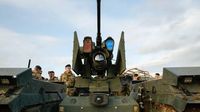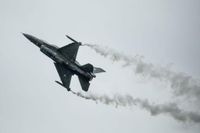Shares of Qinetiq, the British defense technology firm, plummeted by over 20% on Monday, March 17, 2025, following the company's profit warning linked to significant contract delays from both the UK and US governments. This drastic fall reflects growing investor anxiety as the company forecasts slower than anticipated growth amid challenges stemming from geopolitical uncertainties and unexpected administrative shifts.
Qinetiq’s announcement, which came as military spending across Europe is on the rise due to Russia’s invasion of Ukraine and tensions around Taiwan, took many by surprise. Investors had largely expected defense stocks to thrive due to increasing demand for military technology. But the dynamics of contract delays introduced unexpected hurdles.
Supported by increasing geopolitical tensions, Qinetiq's shares once held significant market value, riding the wave of lucrative defense contracts. Yet, the recent turn of events indicates vulnerability within the sector. The company reported its underlying profit guidance for the year faced a downturn of up to £30 million due to its struggles, particularly within its US operations.
Market experts noted the disservice of unforeseen contract delays has resurfaced doubt among stakeholders. Russ Mould, investment director at AJ Bell, framed Qinetiq’s predicament as indicative of broader sector vulnerabilities, stating, “It’s a reminder to investors even the sectors with strong earnings growth opportunities aren’t immune to bumps in the road.”
Analysts have pointed out issues within the procurement system. The Defence Committee had warned last year about inefficiencies within the UK's procurement processes, which adds complexity to attaining contracts necessary for business operation and growth.
On the same day, Qinetiq revealed it was restructuring its US business to pivot from its current challenges. The restructuring effort follows the appointment of industry veteran Tom Vecchiolla earlier this year, who had been brought on board to spearhead growth initiatives.
Despite the setbacks, Qinetiq announced plans to extend its share buyback program, committing to redirect £200 million back to shareholders over the next two years—a move intended to bolster investor confidence amid frustrating market conditions. Still, it was not sufficient to prevent the downward spiral of share prices on the announcement day.
Following Qinetiq’s warning, shares of other defense firms were also adversely affected, with major stocks like Chemring and Cohort seeing declines of around 3% and 1.5%, respectively. Even BAE Systems, typically resilient, saw fluctuations, though to a lesser degree.
For 2025, the company now expects organic revenue growth of only about 2%, well below previous forecasts of high-single digit growth. Underlying profit margins are anticipated to drop to approximately 10%, marking a stark departure from earlier expectations of stable margins near 12%.
A significant aspect of Qinetiq's challenges has been tied to the tactical decisions made by the US Defense Department. Amidst the backdrop of the recent government shift, increased scrutiny around cost-cutting measures and tighter fiscal reviews has led to delays on new contract approvals. This has impacted routine operations across various defense sectors.
Qinetiq, which has been recognized for developing advanced technologies across multiple defense platforms, now indicates possible impairments totaling approximately £140 million due to the unpredictable market. This also includes anticipated one-off charging situations surrounding cost recovery specific to their legacy operations, particularly within the US.
The sector's volatility came under scrutiny even as governments strive to ramp up military advancements. Countries across Europe have begun prioritizing defense budgets to address rising security needs. For the UK, Prime Minister Sir Keir Starmer pledged to increase defense spending to 2.5% of GDP by 2027.
Qinetiq has previously experienced resilience due to longer-term contracts, but the combination of short-cycle contract delays and slowed US orders has prompted immediate concerns about maintaining their position amid increasing competition.
Investors are left grappling with uncertainty around procurement processes and future government spending changes impacting the defense technology industry. The anticipated restructuring within Qinetiq’s US operations may offer some hope for stabilization, but the mid-term outlook remains clouded with doubts.
“The changes we are implementing are aimed toward consistency within our capabilities, but the turbulence we face should remind us not to take market positions for granted,” Qinetiq's CEO Steve Wadey told analysts following the announcement.
Market analysts remain cautiously optimistic about the long-term prospects for the defense sector, citing pent-up demand for technology products and regional security efforts as catalysts for future growth. Nevertheless, Qinetiq’s recent developments highlight the risks associated with reliance on governmental contracts and the necessity for agile responses to fluctuations within administrative priorities.
Despite the immediate declines and restructuring plans, many analysts argue the defense sector’s inherent potential for growth remains strong. Continued global instability might very well prompt future contracts, but Qinetiq’s recent struggles serve as evidence of the necessity for improved operational management below the surface.










